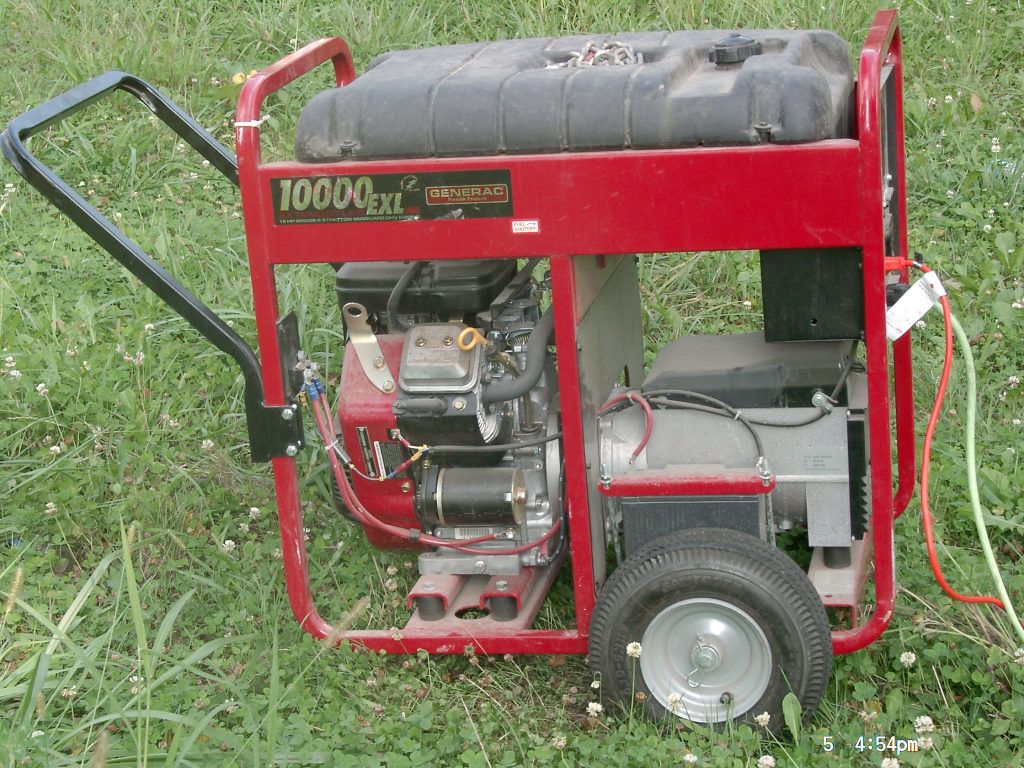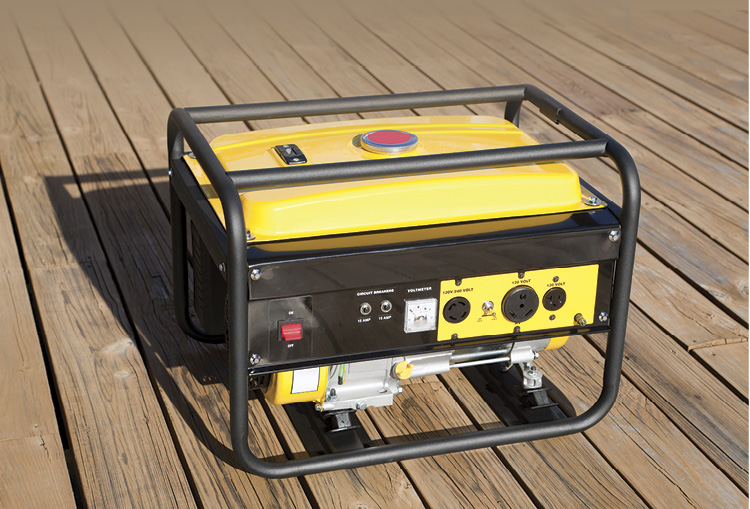If you’re wondering, how long does a generator need to cool down, then you came to the right place. How long a generator needs to cool down depends on its size, model, fuel type, and how long you use it. Small generators can take a few hours, while bigger ones take several more.
After you turn your generator off, you should allow it enough time to cool before using or refueling it. In this article, I explain why this is important, what influences the cool-down time, and how you can keep your generator cool to help it cool down faster.
Why Generators Need To Cool Down Before You Refuel It
To Prevent Fires
Refueling your generator while it’s hot could cause a fire. You need to wait a little while for it to cool down before pouring gas into it.
The gas tank is usually positioned right at the top of the generator. This is to ensure that the fuel flows directly to the engine. However, there is always a risk of spillage when refueling the tank, and fuel is highly flammable.
If you end up spilling even just a few drops, they’ll start burning. These small flames can ignite the gas tank, and your whole generator could catch fire. It can also cause an explosion.
To Prevent Harmful Gasses
Heated fuel can omit some toxic gasses. Even if you’re confident you won’t spill any, taking this chance isn’t a good idea. These gasses can harm you, your pets, and the environment.
To Prevent Damage To The Generator
Generators may look and sound rugged, but they are pretty sensitive. If you don’t wait for the engine to cool down before refueling or using it, your generator could develop issues.
Besides the engine, you risk damaging the inside of your generator too.

How Long Does A Generator Need To Cool Down?
Generators typically cool down enough within 15 – 20 minutes for a safe refuel. It’ll only be completely cold after 4 to 10 hours, and a few factors could influence this. Here’s what you need to keep in mind:
The Size of Your Generator
Larger models that generate more electricity usually take longer to cool down than smaller ones. A 500w generator can completely cool down within 4 hours, while a larger 3000w generator needs about 10 hours.
The Location of Your Generator
Where your generator is operated greatly influences how long it takes to cool down. Everything surrounding your generator will impact it, from the area you live in to its physical location.
If you live where temperatures are moderate, you don’t have to worry about the weather affecting your generators’ cool-down time too much. Regions with extreme highs can prolong the time your generator needs to cool. It will take even longer if your generator is outside in the sun.
Shaded spots and areas with cool temperatures are the best for generators. Not only will it help your generator heat up less while operating, but it’ll also reduce the cool-down time.
How Long You Used Your Generator
Generators reach a very high heat while in use. The longer they’re up and running, the hotter they’ll become. If they’ve reached a higher temperature during operation, they’ll take longer to cool.
The same is true for the opposite. If you didn’t use it for a long time and it hasn’t heated up yet, the cool-down time will be much shorter.
How long does oil take to cool down in a generator?
Regularly changing the oil in your generator is important, but you can’t do that while it’s hot. It takes about half an hour for the oil to heat up while a generator runs. However, oil won’t cold down as fast.
You should only change the oil when the generator has cooled down completely. This means the waiting time could be the same as when you want to refuel it. Even if the oil feels cold, the engine may not be cool enough.
Pouring new oil into a hot generator isn’t a good idea. This will reheat the oil and could lead to more frequent oil replacements.
The Best Way To Set Up And Cool Your Generator
Generators aren’t cheap, and you wouldn’t want to damage the engine with the wrong practices. There are a few tips that you can keep in mind to ensure that your generator is safe. These tips will help decrease how long it takes for your generator to cool down.
Allow Enough Ventilation
Use your generator in an area that has proper ventilation. There should always be fresh air or wind coming through the site. Closed garages and indoors aren’t suited spaces for these appliances.
Fan Cooling
You can use a fan or portable air conditioner to cool your generator faster. If your generator is indoors, I also recommend placing it near something that’ll cool it down.
Don’t use an air conditioner that sprays water directly on your generator. This can cause severe damage to your device.
Avoid Direct Sunlight
Placing your generator in direct sunlight increases its overall temperature. This makes it much harder for it to cool down. You can set your generator in complete shade.
Use Liquid Cooling
Installing a water pump and radiator on a generator that doesn’t have one built in can safely cool the engine down. These add-ons will help regulate engine temperatures and prevent overheating.
Don’t Overload Your Generator.
Overloading your generator can cause power failure or surge and break your generator. The engine can damage entirely and need replacement, while the appliances in your home could also short-circuit and break.
Before Shutting Off
Keeping your generator cool will help prevent damage and keep it from shutting off. Although the smallest thing won’t break your generator, heat can cause serious issues, especially while refilling gas or oil.
You should also be cautious when working with your generator and aware of your surroundings. Generators are explosive, and keeping them cool reduces this risk.
I hope this article was helpful and you enjoyed reading it. Although it might seem obvious you would be surprised to know how few people know how long a generator needs to cool down, and the consequences of not letting your generator cool down properly! If you have more questions about safely running and maintaining a generator, ask them in the comments!

